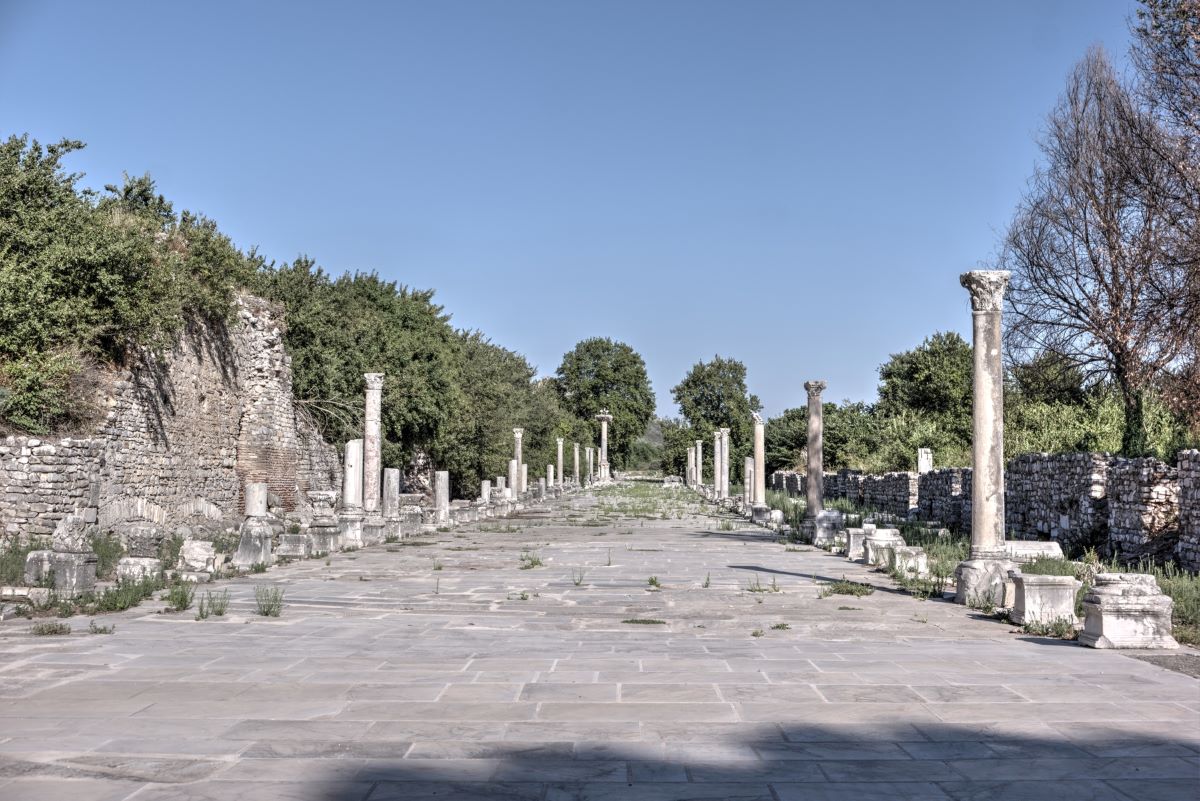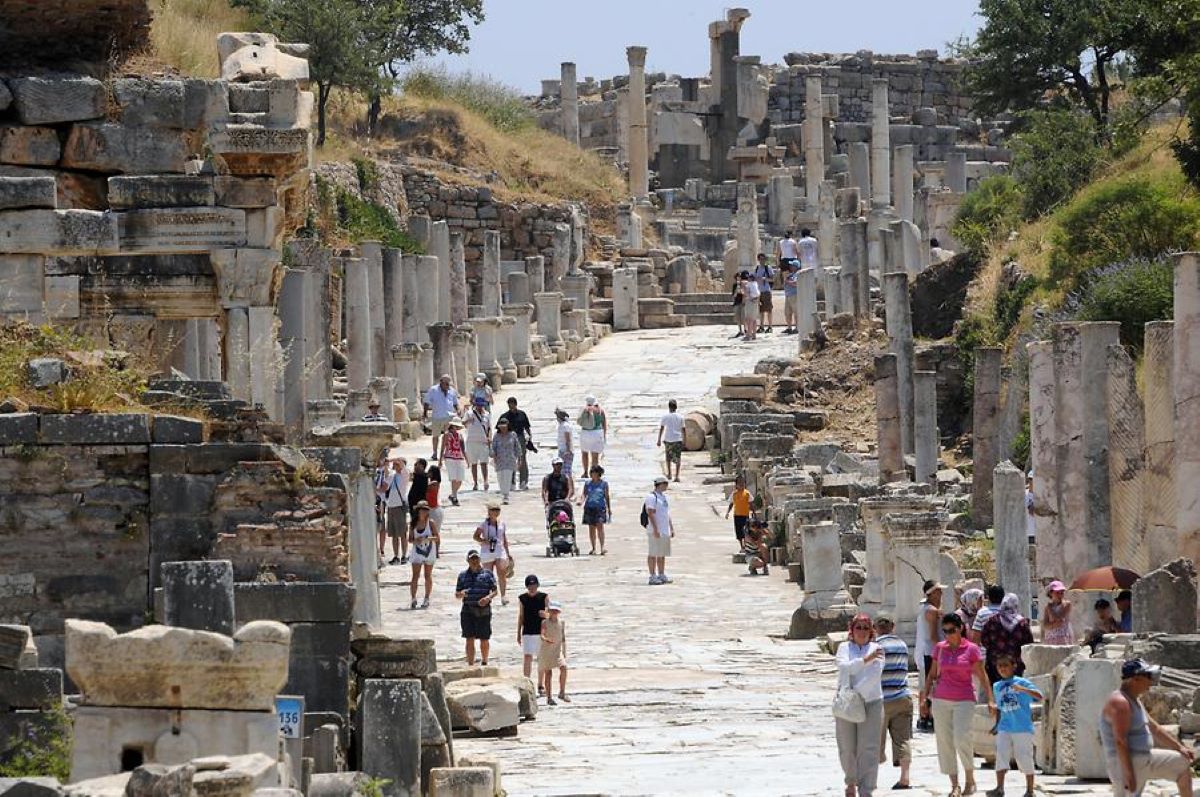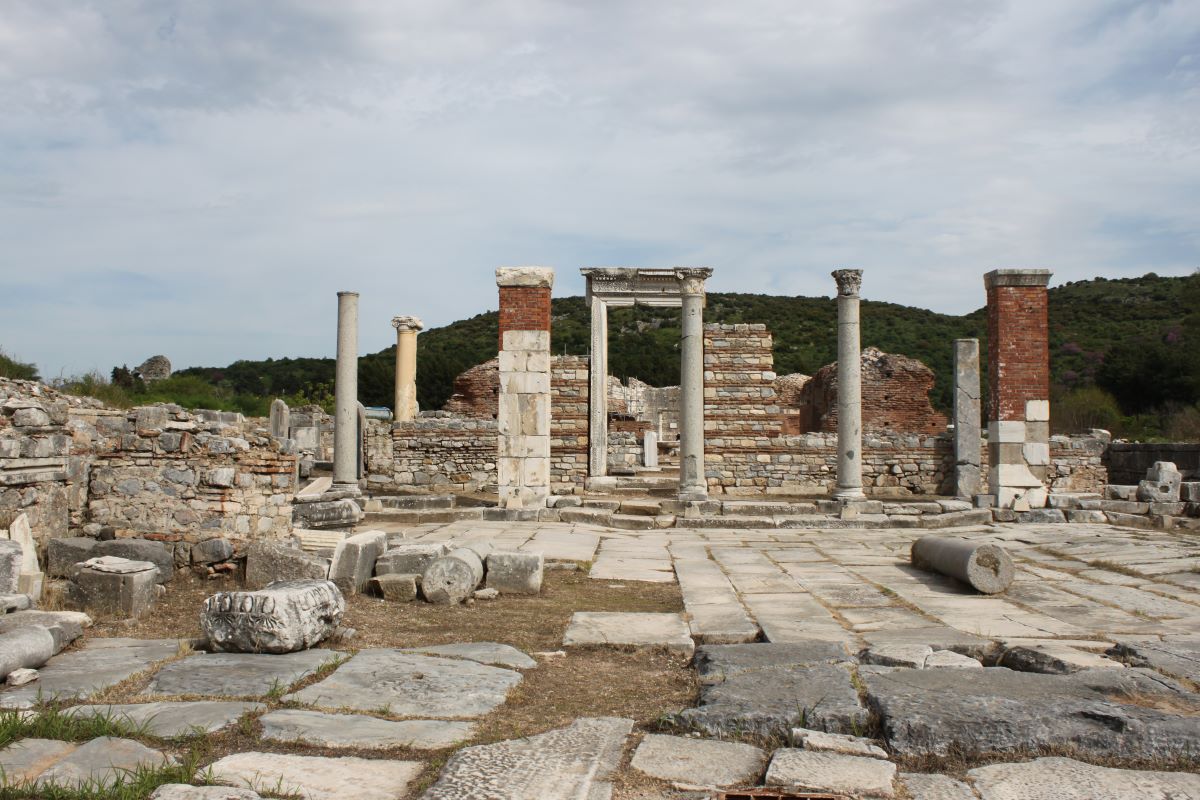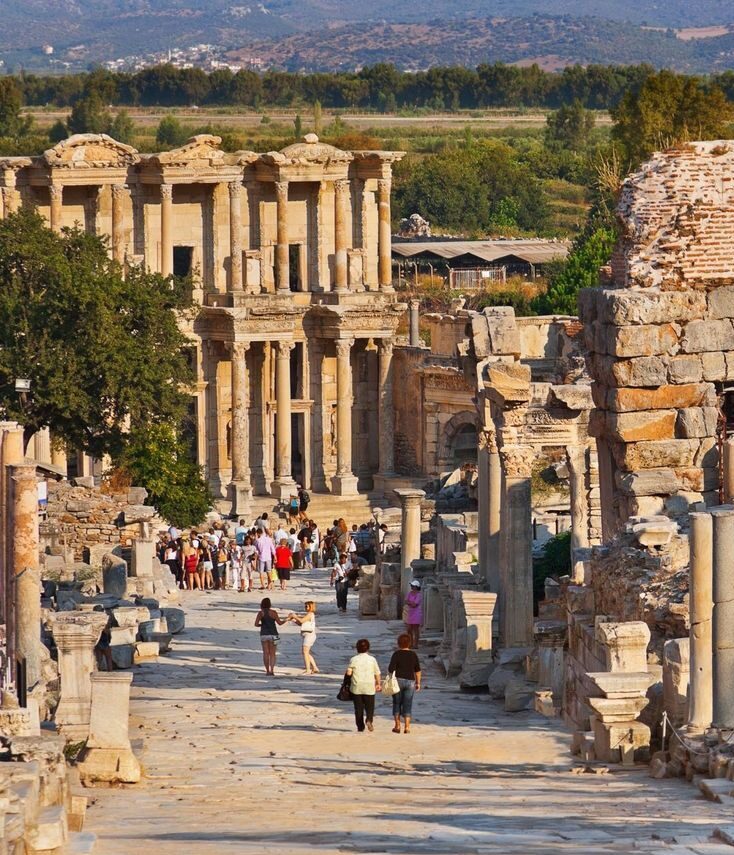The ancient city of Ephesus is a site of remarkable historical significance, with a…

Revealing Daily Life in Ephesus: Citizens and Slaves during Roman and Hellenistic Times
Ephesus was a bustling metropolis during the Roman and Hellenistic periods. Understanding the daily life of its citizens and slaves provides valuable insights into the social structures, occupations, and dynamics of this ancient city.
Ephesian society was hierarchically structured, with clear distinctions between citizens and slaves. Citizens were free individuals who enjoyed certain privileges, while slaves were owned and had limited rights. Citizens were further divided into free citizens, metics (foreign residents), and slaves, each with distinct roles and status.
Free citizens in Ephesus were engaged in a variety of occupations. Agriculture and trade were common, with fertile lands and a bustling port facilitating commerce. Crafts and professions, such as pottery, metalworking, and textile production, thrived in Ephesus. Education and intellectual pursuits were also valued, with philosophers, scholars, and artists contributing to the city’s cultural scene. Family life and household dynamics played a crucial role, with defined roles for men, women, and children, and domestic activities and leisure pursuits forming an integral part of daily life.
Slavery was prevalent in Ephesus, with different types of slaves serving in households, agriculture, industries, and public works. Household slaves performed various tasks, including cooking, cleaning, and childcare. Agricultural and industrial slaves worked on farms, mines, and factories. Public slaves served in administrative roles or as laborers in the city’s infrastructure projects. Slaves had limited rights, and their daily lives were heavily dependent on the whims of their masters.
Citizens in Ephesus relied heavily on slave labor for their daily needs. Slaves were considered property and were subject to mistreatment, but they also played a significant role in the social dynamics of the city. Interactions and relationships between citizens and slaves were complex, ranging from exploitation and abuse to mutual dependency and even affection. Slaves also influenced the culture and daily life of Ephesus through their labor and contributions.
The daily life of citizens and slaves in Ephesus during the Roman and Hellenistic periods was multifaceted, shaped by social structures, occupations, and interactions. While citizens enjoyed certain privileges and engaged in various occupations, slaves were an integral part of Ephesian society, performing essential tasks but facing limitations in their rights and freedoms. Exploring the social dynamics and common occupations of Ephesian citizens and slaves provides a nuanced understanding of the ancient city’s complexity and sheds light on the daily lives of its inhabitants.




This Post Has 0 Comments